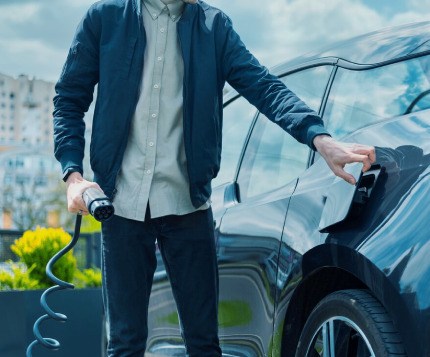When considering the purchase of a new electric car, it’s important to note that the automotive industry has recently undergone a significant transformation due to the growing popularity of electric vehicles (EVs).”
With concerns about environmental sustainability and the need to reduce our carbon footprint, many consumers are considering making the switch to electric cars.
However, this decision comes with several considerations, including whether you have a garage where you could charge your vehicle, proximity to charging stations, and the specific challenges of living in a remote area.
In this article, we’ll explore what to consider when buying an new electric car and address common concerns related to charging and remote living.
Why choose an new electric car
Buying an new electric car is a significant decision with many factors to consider. However, with the right information and planning, you can make an informed choice that aligns with your lifestyle and values.
Electric cars are not only environmentally friendly but also cost-effective in the long run. Embrace the future of transportation and reduce your carbon footprint by choosing an electric car.
Environmental benefits
One of the primary reasons people opt for electric cars is their positive impact on the environment.
Unlike traditional gasoline-powered vehicles, electric cars produce zero tailpipe emissions. This reduces air pollution, greenhouse gas emissions, and our dependence on fossil fuels.
Cost savings
New Electric cars can also lead to significant cost savings in the long run. Electricity is generally cheaper than gasoline, and electric cars require less maintenance due to fewer moving parts.
Moreover, governments often offer incentives and tax credits to encourage EV adoption, making them an attractive financial choice.
Types of electric cars
When considering an new electric car, it’s essential to understand the different types available. Battery Electric Vehicles (BEVs) run solely on electricity and must be charged regularly.
Plug-in Hybrid Electric Vehicles (PHEVs) have both an electric motor and a gasoline engine, providing more flexibility.
Do you need a garage

Having a garage can enhance your electric car ownership experience. It provides a secure and weather-protected place to charge your vehicle.
Additionally, it can extend your electric car’s battery life by shielding it from extreme temperatures. If you don’t have a garage, however, don’t worry. You can still own an new electric car.
Many public charging stations are available, and some cities even offer curbside charging. Consider installing a home charging station if you have a dedicated parking spot.
Charging infrastructure
When it comes to charging infrastructure, there are two very important factors to consider:
1.Accessibility to harging stations
Before buying an new electric car, check the availability of charging stations in your area and along your regular routes. Ensure that charging stations are conveniently located to meet your daily needs;
2.Home charging solutions
Home charging stations offer the convenience of charging your car overnight. They come in various options, from standard wall outlets to faster Level 2 chargers. Investing in a home charging solution can simplify your charging routine.
Managing without a garage
Here are some factors to consider if you don’t own a garage:
Outdoor charging options
If you lack a garage, you can install an outdoor charging station. These stations are designed to withstand the elements and provide a secure place to charge your EV.
Weather considerations
Be prepared for different weather conditions when charging your new electric car outdoors. Extreme cold or hot temperatures can affect battery performance, so consider investing in weather-resistant charging equipment.
Range anxiety
Most people who consider the idea of buying an electric vehicle still experience some level of anxiety:
Understanding range
Range anxiety is a common concern among prospective electric car owners. It refers to the fear of running out of battery power before reaching a charging station.
Modern EVs have improved range, but it’s crucial to plan your trips and be mindful of your vehicle’s remaining charge.
Dealing with low battery situations
In the event of low battery situations, remain calm. Most electric cars have built-in navigation systems that can guide you to the nearest charging station. Carry a portable charger or adapter just in case.
Living in a remote state – choose your EV wisely and carefuly
If you wonder if your state, town or county is a good place to invest in an electric vehicle, you have to consider these two factors:
Limited charging infrastructure
Living in a remote area may pose challenges related to limited charging infrastructure, but you still don’t need to give up your dreams of buying an electric vehicle.
Plan your routes carefully, and be aware of charging station locations. Consider an electric car with a longer range to accommodate longer distances between charging stops in your area.
Planning long-distance trips in advance
If you frequently travel long distances, it’s crucial to ensure your chosen new electric car model can handle the journey. Some electric cars offer extended ranges, making them better suited for remote living.
Additionally, consider the availability of charging stations along your route and plan your stops accordingly to avoid any inconvenience.
Advanced planning and selecting a new electric car with a robust range can significantly enhance your long-distance travel experience.

My name is Rebecca McCarthy and I am an American girl with British heritage residing in the beautiful city of Nashville, Tennessee. I have always had a keen interest in cars, particularly brand new ones that showcase the latest technology and design features. I am also passionate about travelling and experiencing new cultures, as well as enjoying hot summer days with friends and family.



